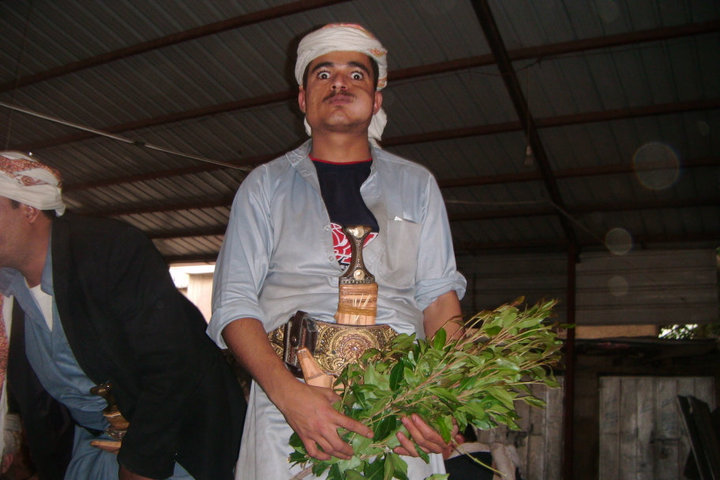Christopher Davidson is a British academic and the author of several books on the Gulf (generally quite critical of the petro-monarchies there.) Longtime reader Amjad compiled together an interview Davidson gave on Twitter on the occasion of the release of his new book, Shadow Wars. We are reproducing the interview below – with light editing for punctuation etc. – as it may be interest readers for its out-of-the-mainstream approach to the Arab Spring. It’s not an endorsement of the book, which we have not read, but looks interesting if it sheds light on the policies of Gulf states during the last six years.
In the long view, to what degree are Western governments responsible for the ongoing conflict in Syria?
The Western powers have repeatedly sought to interfere in Syria for a number of decades - the latest conflict is born out of using 'Arab Spring' as diplomatic coverage for the overthrow of an antagonistic regime to the interests of the West's allies While UK had plans pre-2011 to use Syrian Muslim Brotherhood & 'armed men', in 2011 strategy shifted to West's allies funding proxies.The latter (Saudi, Qatar, etc) expected a Western airstrike intervention (as with Libya), and, frustrated, had to push US's 'red lines'.
Did the West have a part to play in the failure of the Arab Spring?
The nationwide revolutions in Tunisia & Egypt saw discomforting overthrow of dictators who had opened up their economies to Western investment & had played the game of the 'War on Terror'. Their overthrow wrong-footed the US govt. But very rapidly a series of counter-revolutions began (or rather 'reactions') as the West's key regional allies began to sponsor (1st) Islamist parties that could continue to prevent formation of inclusive, democratic (& secular) societies, & could uphold capitalist structures and (2nd) hard-man 'deep state' military dictatorships, when Islamist parties proved unable to keep people off the streets. The 'Plan B' was then to re-direct the 'Arab Spring' to states antagonistic to West (Libya, Syria, etc) & willfully foster revolutions. Saudi, UAE, Qatar, etc., all played key roles at govt level in destabilizing these long targeted Arab states, under Arab Spring banner. As 'revolutions' in Libya/Syria failed to garner full national support, a mix of direct interventions (Libya)& indirect (Syria) was needed.
Why don't we hear much about Yemen?
Yemen is commonly perceived as a problem for the US/UK, as their key ally Saudi is haplessly bombing civilians. But in many ways the conflict helps keep the two main regional powers (Saudi & Iran) in a useful stalemate behind their proxies. The US can now trade freely with both sides (since the Iran deal), & can keep Saudi arms spending high, even at a time of low oil prices. Saudi is no longer the world's oil swing producer thus has lost its centrality in US foreign policy. The Yemen fiasco/tragedy puts Saudi in a very difficult position, as it still relies on US protection (as evidenced today), and has nowhere else to really turn to. A good comparison would be the costly Iran-Iraq stalemate of the 80s: the US's Arab allies supported Saddam, while the US found a secret means of supplying Iran with what it needed (Iran Contra) so as to keep it 'in the game' & prevent neither side from winning.
Do you think the Russians think we are as bad &corrupt as we think they are? Are we just as bad as each other?
In Syria, Russia has responded to a formal govt request for assistance. It is constrained in being able to bomb ISIS As the US-led coalition effectively operates no-fly zone over most of ISIS's territory. Russia/Syrian/Iran aircraft cannot fly there The US even has an airbase in far north-east of Syria, barely miles from easy ISIS targets. But turning to the bigger question Russia is rightly anticipating that any further intervention (e.g. ground troops) could lead to a repeat of an Afghanistan situation where in the 80s it intervened to help the People's Democratic Party against an Islamist extremist uprising backed by the US/UK in cooperation with Saudi/Pakistan, which eventually led to Soviet forces getting their own taste of a Vietnam (the US's objective) Today in Syria (& Iraq) we see many of the same characteristics of the 80s jihad in Afghanistan, with heavy accompanying propaganda.
What did you hope to achieve when you set out writing this book?
By drawing on recently declassified documents, leaked correspondences, interviews, and court subpoenaed files, the aim was to tackle an entire 'regime of knowledge' that largely depicts the Western postcolonial involvement in Arab world as being benign.
Moving beyond the obvious examples of the 2003 Iraq invasion, it aims to show how an elaborate network of proxies & clients have helped ensure access to cheap resources & cheap labour for foreign companies and (e.g. in 2011) have been co-opted to remove threats More broadly, it used comparative historical analysis to demonstrate that fingerprints of earlier counter-revolutions from 20thC can be found all over the Arab Spring counter-revolutions. Including the UK-US actions in Russia (post revolution), Malaya, Kenya Guatemala, Iran (1952), Syria, Iraq (1950s-60s), Cuba, Chile, Nicaragua (great example), Afghan jihad, jihadists in Balkans, etc.... And in terms of aims for the book: if one wants the MidEast to recover, one must identify the real root causes of its afflictions
And if one wants the essentially peace-promoting Islamic faith to be saved, one must identify how it is being co-opted by external powers (with local, reactionary allies) to generate extremist cults capable of stifling (and fighting) progressive/nationalist forces.




